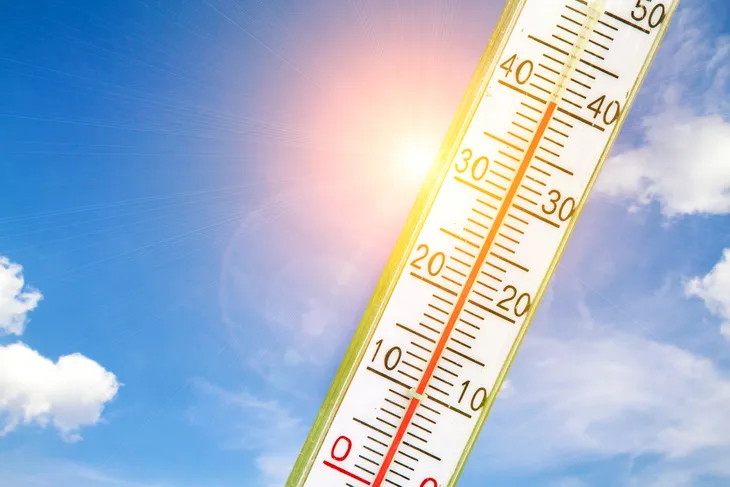Over one million Americans faint every year, and countless more do worldwide. Fear, pain, the sight of blood or prolonged standing – think the long lines of summer travel – can trigger fainting.
These triggers set off a reflex in our nervous system that cause our hearts to paradoxically slow instead of speed up, and our blood vessels to dilate instead of constrict. Blood pressure and brain blood flow plummet, and we faint.
Excessive heat plays a role, too, as it makes it more difficult for the body to maintain blood pressure. With the weather warming across the country, now is a good time to know signs and symptoms that lead to fainting. As a physiologist, I can offer some pointers.
Blood pressure regulation harder in summer
Physiologists, neurologists and cardiologists have long studied how people regulate blood pressure and maintain consciousness while standing. Upon standing, there is an immediate decline in blood pressure, and the body must respond to this decline. The normal response includes constriction of blood vessels, increased heart rate and the release of various hormones into the bloodstream.
Together these responses help to maintain blood pressure. By protecting blood pressure, our oxygen-thirsty brain ensures that it will continue to be adequately nourished. Usually the response is flawless – we can stand without any trouble.
But various triggers sometimes mess up this finely tuned response, and the summer heat makes it more challenging to regulate blood pressure.
Ultimately, if blood pressure is not maintained, brain blood flow will decline. The fancy term for this is cerebral hypoperfusion – the defining characteristic of fainting (i.e., syncope), whatever the cause or trigger.
The symptoms that precede syncope vary but may include sweating, nausea, paleness and abdominal discomfort.
The strong of heart and the faint of heart are vulnerable
Soldiers standing guard for long periods in the heat without moving can have excessive gravity-induced pooling of blood in their legs, which can trigger a faint. But simply shifting weight from one leg to another will contract the leg muscles and propel blood toward the heart and head. This will usually prevent a severe decline in blood pressure.
Astronauts returning to Earth after a sojourn in space are especially sensitive to gravity. When they first return to Earth, many astronauts cannot stand for more then a few minutes without experiencing syncope. Fortunately, this resolves once they get reaccustomed to Earth’s gravity over the ensuing days.
Sometimes extreme emotion elicits a faint – think Aunt Pittypat swooning in “Gone with the Wind.”
Other triggers include watching a medical procedure, seeing blood or experiencing pain. Also, anything that depletes the body of fluid can increase the risk of fainting. This includes dehydration, diarrhea or diuretics (water pills).
Know when there could be a danger
Life-threatening issues involving the heart are also a cause of fainting.
Abnormal heart rhythms that are too slow or too fast can cause a faint. These abnormal rhythms dramatically decrease the blood pumped out by the heart, which causes blood pressure and brain blood flow to decrease.
Structural heart problems (termed cardiomyopathies) are sometimes the cause of these abnormal heart rhythms. Other times, inherited disorders related to faulty ion channels in the heart cells (called channelopathies) are a cause. Fortunately, these are rare.
One to 3% of emergency room visits are due to fainting. Among the elderly, fainting is a common symptom prompting a trip to the emergency room.
For reasons not completely understood, women faint more than men. And the economic burden of syncope is high. Direct hospitalization costs in the U.S. are US$2 billion to $3 billion per year.
Preventing a faint
Can you prevent a faint? Sometimes. Here are some tips: Stay well-hydrated, avoid extreme temperatures, including long hot showers, and avoid fasting for too long.
When standing, be sure to shift your weight from one leg to another, and if you begin to feel woozy, cross your legs and clench the muscles in your buttocks and legs. This really can help to prevent a faint. Also, avoid alcohol, hyperventilation and sudden posture changes.
Last, if you faint, be sure to consult a health care provider. Determining the cause of fainting is not always easy.
If fainting occurs more than once, your health care provider may recommend increasing salt and water intake, and may prescribe medication to help manage symptoms. Exercise training is also often recommended. While fainting is often benign – especially in younger patients – it is important to get checked out.
William B. Farquhar, Professor of Kinesiology & Applied Physiology, University of Delaware
![]()
This article is republished from The Conversation under a Creative Commons license. Read the original article.







